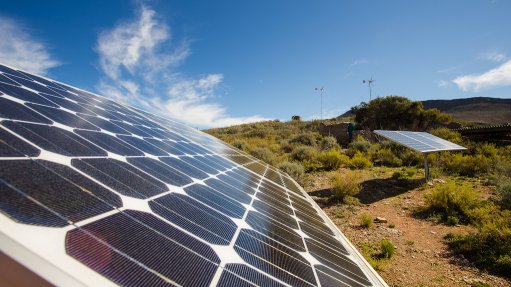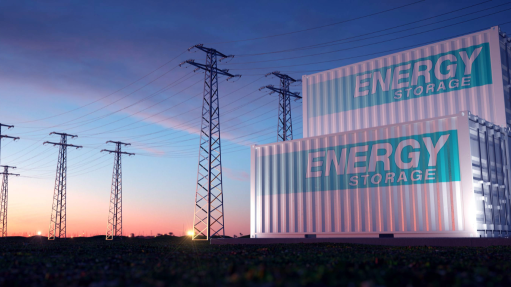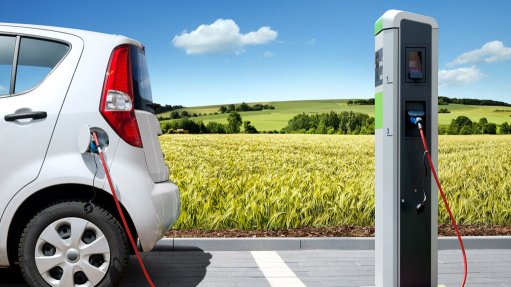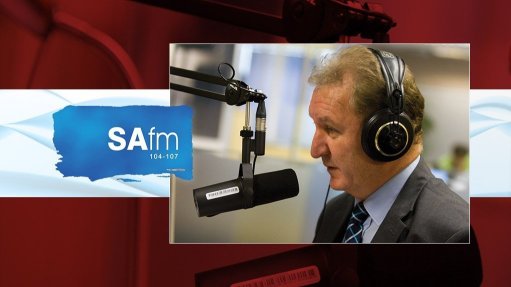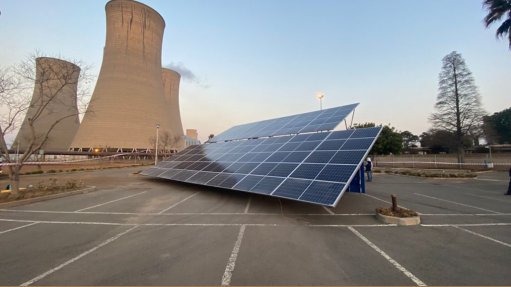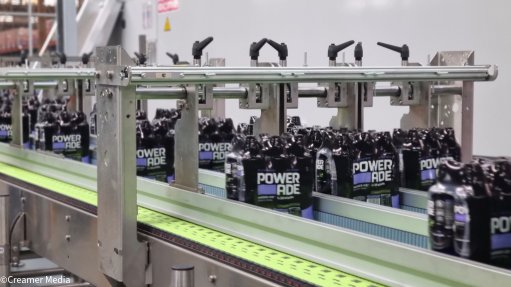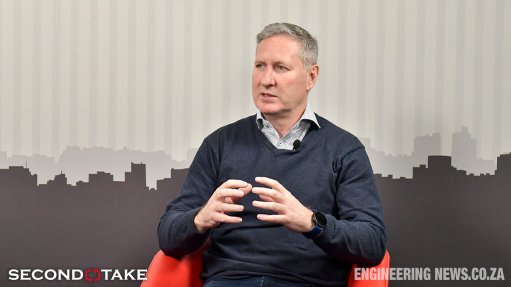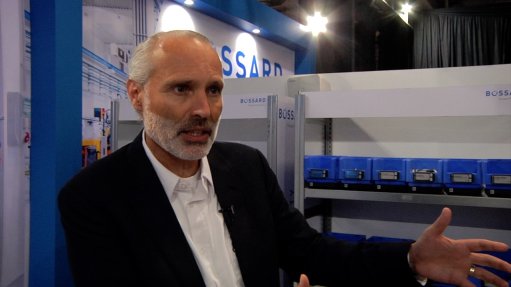Discussing Green Energy's Sustainability, Security, and Growth
This article has been supplied and will be available for a limited time only on this website.
Why is South Africa's decarbonisation journey essential for energy security, growth, and human dignity? What role does the private sector play? And how is the energy industry closing the gaps between energy producers, buyers, and public infrastructure?
There were some of the questions raised and answered during the Energy Security and Sustainability Dialogue, a special event hosted by the Gauteng branch of the Black Management Forum (BMF) and Yellow Door Energy, an independent power producer that generates and sells energy to the South African market.
The evening, hosted at the South African Institute of Chartered Accountants (SAICA) in Sandton, provoked interesting and wide-ranging discussions, probing the minds of three expert panellists: Forbes Padayachee, the CEO of Yellow Door Energy South Africa (YDE); Hlatse Nkune, Energy Finance Principal at Nedbank and Thembani Bukula, CEO of power trader POWERX, a YDE customer and important player in the aggregator and trading market in South Africa. In a discussion hosted by Ayanda Masina, they looked at the why and how of energy transitions in the country.
Why decarbonise?
The shift in energy generation addresses important economic and social realities. Padayachee gave three reasons why it's worth pursuing decarbonisation and investing in renewables.
The first is that decarbonisation and renewables reduce costs for the country and its companies as they adopt sustainability, circular economies, and cheaper energy. Both also benefit from competitive access to other markets. Many regions of the world have fees tied to product and service output that can be mitigated with green credentials.
However, Padayachee from YDE emphasised that the most crucial issue is energy security, stating, "In South Africa, we have very old coal-fired power plants. Those power plants will need to be decommissioned at some point as most of them are already over their useful life. It's like our cars that we had when we went to university. At some point it will say enough is enough I can’t go on working anymore, and then you've got to replace it. We've got to replace our old power systems with various energy sources. But affordability always needs to be a key consideration for a country. Renewable energy can play a big role in that aspect."
Private sector support
Another notable theme was the role of private sector innovation in building a resilient energy future for South Africa. Some are concerned about private sector involvement in developing energy, that it could lead to privatised energy and the lack of government focused goals and proper regulation. However, this is not the case to date. Instead, collaboration between the public and private sectors is accelerating energy transformation and funding.
Nkune highlighted the urgent need to upgrade the grid infrastructure to meet South Africa’s energy transaction commitments. He highlighted that the Transmission Development Plan (TDP) of 2024 requires approximately 30GW to be grid connected by 2030, 56GW by 2034 and 14,500km worth of transmission lines. The Minister of Electricity and Energy has also indicated that the Government needs about R440 billion to modernise and expand transmission and acknowledged that the Government is not in a position to provide that kind of support, hence the introduction of the Independent Transmission Programme, which will enable private participation. According to Nkune, private sector investment is expected to play a major role in the transmission expansion.
"Government indicated that in terms of a just transition, there is significant investment required. From a fiscal perspective, it's not something that the government will do because it has to prioritise other social needs that we all require. So, it is an aspect where the private sector is participating."
Closing the gaps with power traders
South Africa's energy transition has little merit if it cannot reach end customers. This issue is particularly pressing for large power consumers, such as vehicle and food manufacturers, that export their goods to other markets. Specifically, they need access to green energy in order to meet carbon-related regulations such as the European Union's Carbon Border Adjustment Mechanism.
POWERX's Bukula explained this mechanism. When companies ship goods produced using fossil fuels, they face duties that make them less competitive. They can mitigate these costs through green energy sources. However, obtaining this energy poses a challenge, as many renewable sources capable of meeting their needs are not in close proximity. This is where power traders step in.
"Eskom and the municipalities do not have much green power in their energy mix and have very limited abilities to build green power projects. What traders do is go to the power producers and negotiate to buy the power that they would produce. We then sell that power to the entities that require it. We do not have infrastructure—power lines and transmission lines—so we negotiate a fee to use either Eskom or municipal systems."
These sales don't necessarily deliver that power directly to the customer. Instead, they use an offset system called virtual trading, balancing out the requirements of a company's direct energy use with the green power they purchase. In this fashion, it becomes possible to immediately address pressing power issues and deliver more affordable energy to more people. The process also unlocks more investment capital from financial providers.
Collaborating on solutions
The event hosted by BMF and Yellow Door Energy provided substantial insight. It offered attendees the opportunity to ask questions and join the discussion. Above all, it created a platform to collaborate and develop solutions for South Africa's energy future.
Padayachee said she looked forward to future gatherings and continuing the collaboration with the Black Management Forum.
“There isn't one solution that fits all and we work with our private sector customers to unlock value and to help businesses unlock their specific energy security requirements. It's a full circuit. You need infrastructure development to have GDP growth. You need GDP growth for people to have a better standard of living."
Comments
Press Office
Announcements
What's On
Subscribe to improve your user experience...
Option 1 (equivalent of R125 a month):
Receive a weekly copy of Creamer Media's Engineering News & Mining Weekly magazine
(print copy for those in South Africa and e-magazine for those outside of South Africa)
Receive daily email newsletters
Access to full search results
Access archive of magazine back copies
Access to Projects in Progress
Access to ONE Research Report of your choice in PDF format
Option 2 (equivalent of R375 a month):
All benefits from Option 1
PLUS
Access to Creamer Media's Research Channel Africa for ALL Research Reports, in PDF format, on various industrial and mining sectors
including Electricity; Water; Energy Transition; Hydrogen; Roads, Rail and Ports; Coal; Gold; Platinum; Battery Metals; etc.
Already a subscriber?
Forgotten your password?
Receive weekly copy of Creamer Media's Engineering News & Mining Weekly magazine (print copy for those in South Africa and e-magazine for those outside of South Africa)
➕
Recieve daily email newsletters
➕
Access to full search results
➕
Access archive of magazine back copies
➕
Access to Projects in Progress
➕
Access to ONE Research Report of your choice in PDF format
RESEARCH CHANNEL AFRICA
R4500 (equivalent of R375 a month)
SUBSCRIBEAll benefits from Option 1
➕
Access to Creamer Media's Research Channel Africa for ALL Research Reports on various industrial and mining sectors, in PDF format, including on:
Electricity
➕
Water
➕
Energy Transition
➕
Hydrogen
➕
Roads, Rail and Ports
➕
Coal
➕
Gold
➕
Platinum
➕
Battery Metals
➕
etc.
Receive all benefits from Option 1 or Option 2 delivered to numerous people at your company
➕
Multiple User names and Passwords for simultaneous log-ins
➕
Intranet integration access to all in your organisation






